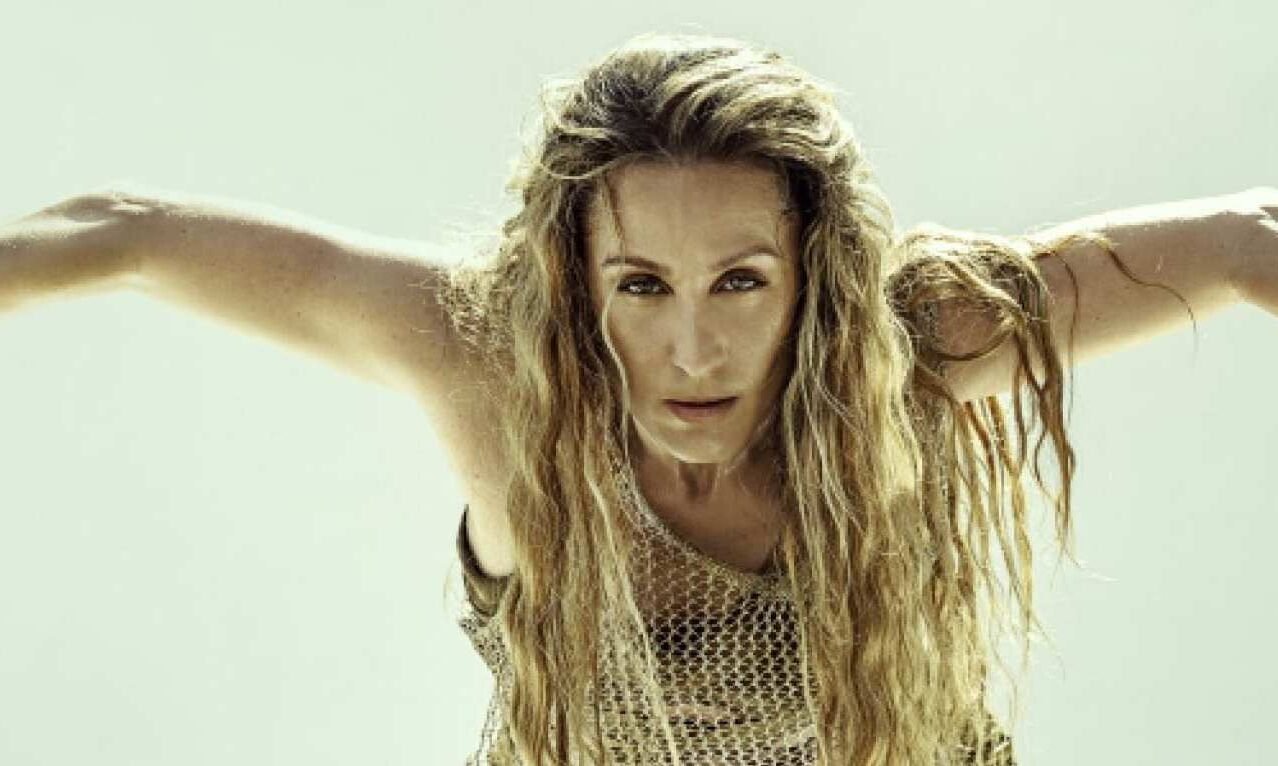We recover this interview granted to ALL FLAMENCO after the pandemic of one of the most interesting international figures in flamenco dance.

“Nowadays it is very difficult to dedicate yourself to this art form when other genres such as urban or contemporary are monopolizing the media”.
Siudy Garrido is a kaleidoscopic bailaora: wherever she dances, she is accompanied by her background as a composer, choreographer and actress. It is not surprising, therefore, that his latest work, “Dancer, my feet are my voi“has become a multidisciplinary project that includes an album, a show and a documentary. A daring concept that has completely seduced the Latin Grammy Academy, for which she has achieved two nominations, making her the first Latin American flamenco artist to do so.
Siudy, your work “Bailaora, mis pies son mi voz” has culminated with the successful premiere of the documentary at the Teatro Capitol Gran Vía in Madrid. Tell us, when and how was this audiovisual project born?
The project started in 2019, initially as a show. First we created the music by the hand of Juan Parrilla and Manuel Fernández. Then we spent the whole year preparing the live show, in co-production with the Adrienne Arsht Center For The Performing Arts in Miami. But then, just when everything was ready to start the tour, the pandemic hit.
How did it affect your work?
At first we were all paralysed… But those moments of waiting were also moments of listening: we saw that the music we had created was very current, even with its flamenco roots, and we felt the need to capture it in time and turn it into an album.
In parallel, my husband Pablo Croce, director of the documentary, filmed this whole creative process in a very organic way, until there was enough material to produce a documentary – with which he has achieved his fifth Latin Grammy nomination.
This is how, in the end, a project 360 of live show, record album and documentary film.
Used to the nerves of live performance and feeling the audience in the theatre, how was the experience of being in front of the camera?
This is Pablo’s second documentary of our work, so in a way we are already used to the cameras during rehearsals. In fact, both Pablo and two of his cameramen are part of the company, so the atmosphere is so familiar that we forget we are being filmed. And that’s when the magic happens, because they capture our most unique and intimate moments of the creative process.
Then there are the transition shots that were produced for the documentary and which I enjoyed so much: I love dancing for the camera and working under the direction of a master like Pablo Croce, a great blessing in my life and a constant source of learning.
“Bailaora, mis pies son mi voz” has been nominated at the Latin Grammys in two categories, what do you consider to be the key to the success of this great documentary?
This work does something rare, showing the bailaora from the perspective of both musician and creator. “The voice” goes beyond the vocal chords: the voice is the concept, the lyrics, the structure of the songs, the composer’s melody and, as the title says, even my tapping is voice. Another interesting aspect of the documentary is that it reveals aspects of flamenco which, probably, for those of us who dedicate ourselves to this art form, are commonplace, but the reality is that it is a world totally unknown to the general public.
With this documentary you seek to show the world that flamenco crosses borders as long as there is feeling and passion, what does flamenco mean to you?
Of course. I hope with my work to contribute my grain of sand in the diffusion of flamenco as a universal art. Here we have put all the feeling, but also work and constant study, which is our way of showing a deep respect for flamenco, as it is an art much greater than its performers.
However, I believe that, at the end of the day, the important thing is to put your heart into it. Heart because nowadays it is very difficult to dedicate yourself to this art form, when other genres such as urban or contemporary are monopolising the media. And above all, heart because, at least in my case, when I have been afraid to follow my instinct and listened to the noise from outside, that is when I have been most wrong: all the answers are within ourselves.
